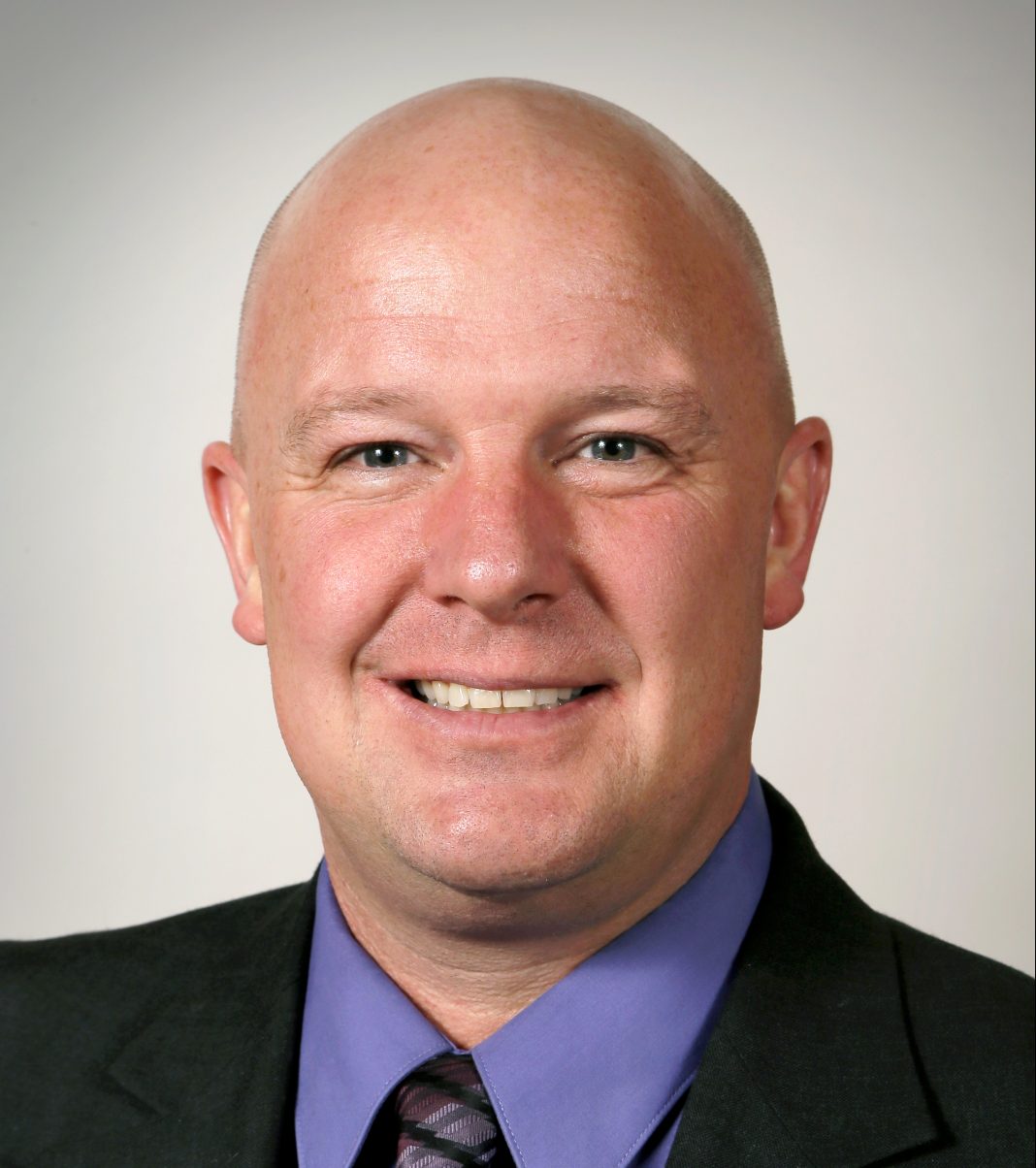All three members of an Iowa Senate subcommittee supported legislation strengthening private property rights in the state. House File 2664 would allow an applicant before the Iowa Utilities Board or a person whose real property is subject to an eminent domain claim to petition to seek declaratory review from the Polk County District Court prior to the IUB’s decision.
Relief by the court is limited to a declaration of the parties’ rights, status and other legal matters related to eminent domain.
Landowners who do not want a carbon capture pipeline running through their property have been begging for help from lawmakers for a few years, but this is the most progress their movement has made.
The bill already passed the House and now needs to clear just the Senate Ways and Means Committee and full Senate before it heads to the desk of Iowa Gov. Kim Reynolds.
Opponents of the bill claim the current process in place is working well. Jake Highfill with the American Petroleum Institute said numerous crude oil pipelines and natural gas pipelines passed well over 90 percent easement over the last 20 years in Iowa. He said there is more than 48,000 miles of pipeline in Iowa and said he is “firmly convinced” people forget where their energy comes from.
“Natural gas heats your homes, grill, runs your cars,” Highfill said. “People forget that all the time.”
Highfill said a pipeline is the cheapest and safest way to bring natural gas and oil and “other commodities.”
Andy Conlin with POET said the bill is adjusting the process more than anything. The current law allows the IUB to make a regulatory decision and a policy decision.
“Those IUB members were selected by the governor. They were confirmed by the State Senate here in this building,” he said. “And essentially what you’d be doing with this bill is supplanting their ability to go through that process and make that policy argument and vest that authority in a Polk County District Cout judge who you did not confirm and really isn’t accountable to the political actors in this building.”
Lindsay Maher, an Iowa resident, said her family has a parcel affected by the proposed pipeline.
“This issue hits home,” she said. “I believe strongly that we need to make a change because while the system may have worked for a couple of companies to go belly up, how many landowners signed easements because they could not afford a lawsuit? They could not afford a legal battle? They could not afford their constitutional rights to property because they knew the long haul that it was going to take?”
Maher said property is “essential” to rights in America.
Kim Junker, a farmer in Butler and Grundy Counties, said she believes Summit “tricked” people early into signing easements. She and other landowners have visited the Capitol every week for the last three years trying to get legislation passed to stop the abuse.
“This is a property rights issue,” she said. “Property rights is a Republican Party platform (issue). “Republicans have had a trifecta in this Capitol for the last seven or eight years. People have lost patience. Seventy-eight percent of Iowans think eminent domain for CO2 pipelines is wrong.
“We’ve heard all the excuses from Summit — ‘You can’t change the rules in the middle of the game.’ Well, what about us? Summit changed the rules in the middle of the game for us farmers. We didn’t ask for this pipeline.”
At first, Junker said, Summit said the pipelines were necessary to get rid of CO2 to combat climate change. That didn’t work, so Summit pivoted to claim the pipeline is necessary to save ethanol. But that didn’t work either.
Marjorie Swan, another Iowa landowner, said Iowans are seeing their land “raped and scared forever.”
“This boondoggle, dangerous, unnecessary, evil project needs to be stopped,” she said. “This hazardous CO2 pipeline is a project to nowhere. Eminent domain for private gain is wrong.”
Other supporters of the bill expressed frustration with the IUB process.
Lobbyists for Summit Carbon Solutions spoke against the bill.
Jake Ketzner, who previously served as Chief of Staff for Gov. Reynolds and was a longtime aide to Gov. Terry Branstad, said Summit is just shy of obtaining voluntary easements for 75 percent of the route statewide.
Ketzner claimed that landowners are indemnified in easement agreements. Landowners disagreed with that claim, however, noting language in the easements lets Summit off the hook.
Jeffrey Boeyink, who also represents Summit, cautioned the bill doesn’t apply only to carbon pipelines. He warned it deals with all hazardous liquid pipelines.
“This bill will have a very chilling effect,” he claimed. “Not only on our carbon pipeline, though, any future pipeline project in the state of Iowa.”
Boeyink also said the bill creates a set of standards and land rights that are based on what kind of project is coming through someone’s farm.
“There’s no logic to why we are creating two sets of land rights based on hat kind of project goes through here but that’s entirely what this bill does,” he said. “At its core, this bill has been written to frustrate infrastructure development. There’s just no doubt about it.”
Boeyink said passing such a bill to protect private property rights will lead to any pipeline project being killed in the state.
“They could create endless timelines and time kills projects. And risk kills capital. And this creates enormous risks for anybody who wants to invest in a pipeline in the future,” Boeyink said.
He finished by claiming this instance is not a taking in the “traditional sense” of eminent domain.
“We don’t own the land,” he said. “We get a right to put a pipe in the land. We restore that land and you farm that land for the next 100 years.”
Jess Mazour of the Iowa Chapter of the Sierra Club said the declaratory order section of the bill will provide relief for people. But the second section is critical.
“That is the part we cannot lose out of this bill,” she said. “If the pipeline is approved and we appeal the decision, we don’t want them to build the pipeline while we’re waiting for a judge’s decision. In Iowa right now, you have to put up a bond that could be hundreds of millions of dollars. We can’t afford it. They can afford it. This removes the bond requirements so that we can have a fair appeal and wait for a judge’s decision without them building the pipeline in the process.”
The bill doesn’t kill ethanol or stop the pipeline, but she said it levels the playing field.
Victoria Sinclair, who spoke in support of the bill on behalf of Land of the Free Action, said the landowners who spoke demonstrated a definite problem exists in the current system,.
The preliminary declaratory review is the solution offered by the bill.
An encumbrance is placed on a person’s property on the first day an application goes to the IUB. It remains throughout the duration of the process.
“So we’re in year three,” Sinclair said. “And these folks still have an encumbrance on their land regardless of whether or not they’ve signed an easement. I would argue an encumbrance is a form of a taking. If it is, then section one of this bill is absolutely necessary to ensure that Iowa Code complies with the U.S. Constitution and our state Constitution.”
Democrat State Sen. Herman Quirmbach supported the bill, which he said gives landowners a chance to be heard earlier in the process.
Quirmbach said the pipeline promoters are responding to financial incentives, which are being used to try to induce the market system to achieve a public policy goal. But the problem is the market system is not being used down the line by the pipeline promoters to try to acquire the resources they need to proceed — the access to the land.
“Instead, what’s being used in many cases is the threat of government coercion,” he said. “Not the market system. And that’s why we’re here today. If the pipeline promoters had stayed with the market system and the financial incentives, then all the deals could have been done voluntarily and the pipeline would probably be halfway built by now.”
The bill doesn’t guarantee a result, he said, but it gives a chance to receive a more just solution. Quirmbach added he would support a stronger prohibition if not a complete prohibition of the use of eminent domain for this type of project. He’d also support a much higher threshold than what is in Iowa Code today.
Republican State Sen. Dan Dawson said he is leaving the subcommittee with more perspective on the topic.
“It’s important to note that the bill is not a guaranteed outcome,” he said. “It is just the ability to open up a process there to provide some relief on private property. And I do think that’s an important aspect.”
Republican State Sen. Jason Schultz, who is managing the bill, said he believes it is an opportunity to let people know the fate of their land without waiting three years.
“That just seems cruel and unusual,” he said. “It’s something we need to do. I do not believe this is going to be the final language of the final bill that goes forward, but we have to have a vehicle. We are going to have to address some of the loose ends in this bill, just the way it is. But we need to keep this moving forward.”












